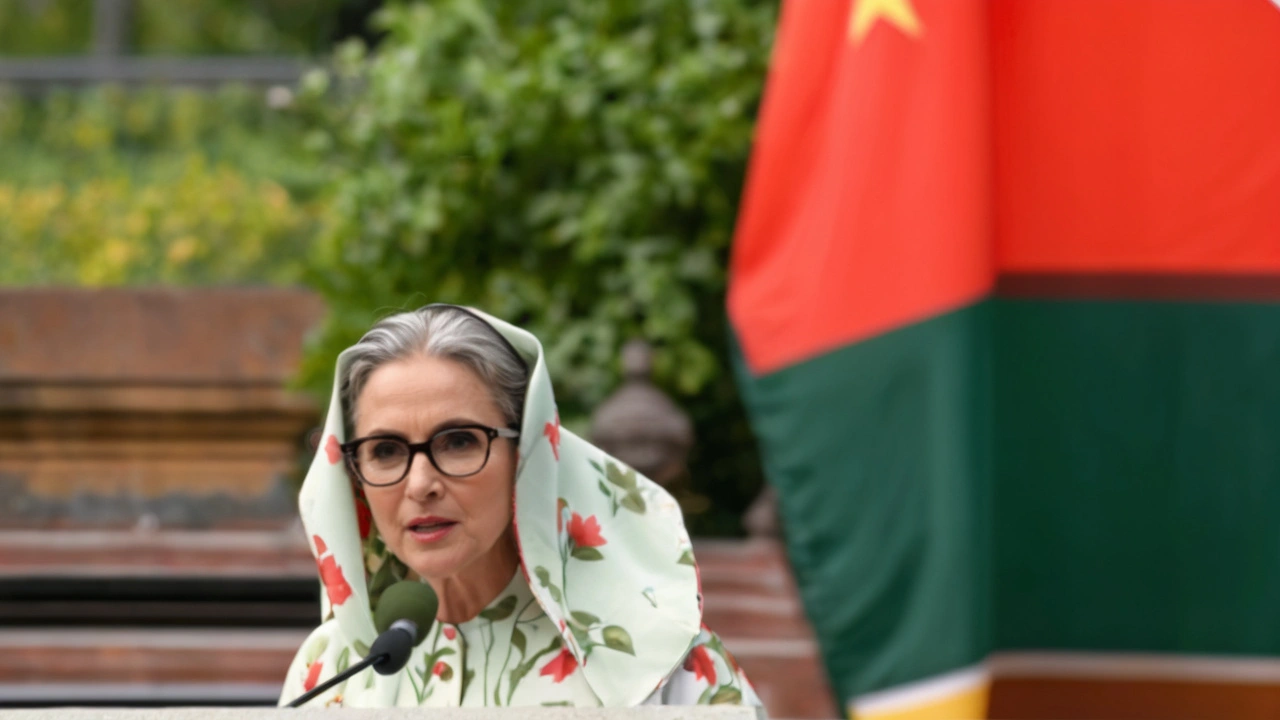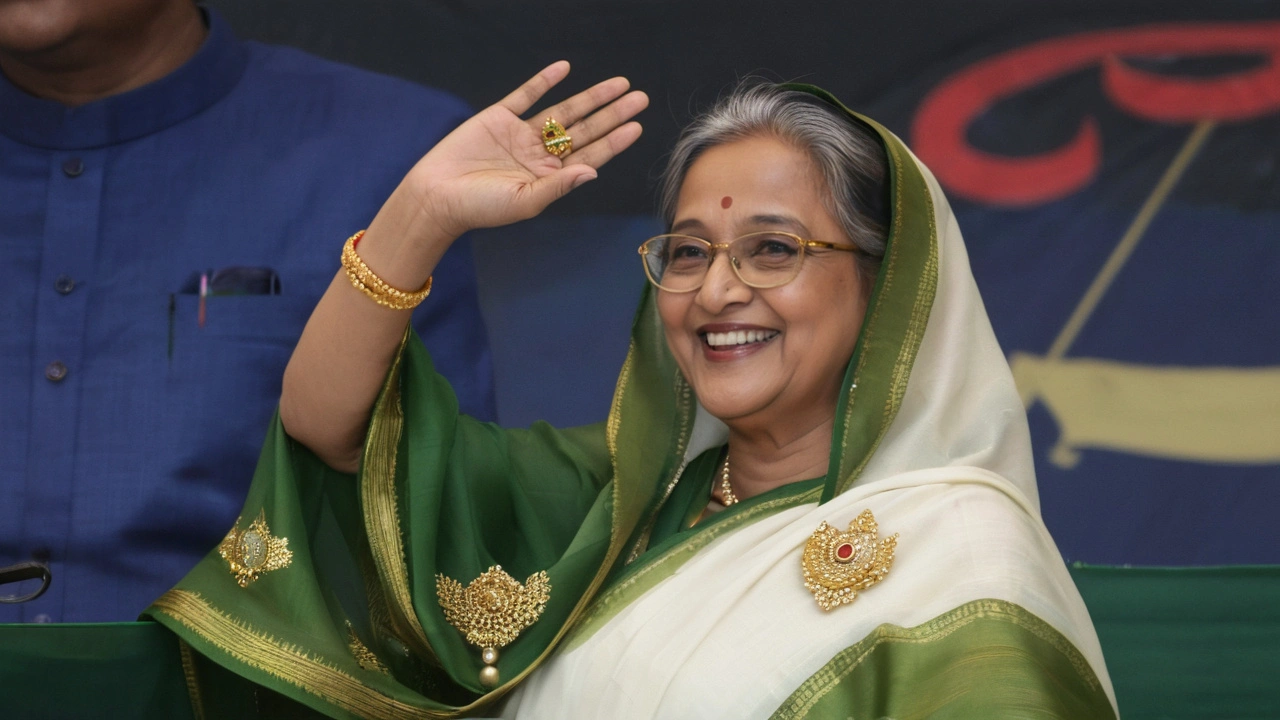Prime Minister's Resignation and Departure
In a stunning turn of events, Bangladeshi Prime Minister Sheikh Hasina resigned from her position amidst widespread unrest and violent protests. The 76-year-old leader was swiftly flown out of the country on a military helicopter, reportedly to Agartala, the capital of India's northeastern state of Tripura. This sudden departure came after weeks of escalating tension and chaos that swept through the nation.
Roots of the Protests
The turmoil began last month with a seemingly localized issue – students demanding the abolition of a quota system for government jobs. This quota system, which reserved a significant portion of government jobs for certain groups, had long been a point of contention among students and young professionals. They argued that it was hampering merit-based employment and perpetuating inequality.
Despite the fact that the Supreme Court had scaled back the quota system in an attempt to quell the unrest, the protests swiftly escalated. The movement transitioned from a single-issue protest to a broader call for Prime Minister Sheikh Hasina's resignation. This evolution in demands was fueled by frustration over perceived government corruption, economic inequality, and limitations on civil liberties.
Heightened Violence and Military Intervention
The protests, which initially took the form of peaceful demonstrations, rapidly turned violent. Clashes between protesters and security forces became a common sight across the country. The government's response was tough; security personnel used tear gas, rubber bullets, and water cannons to disperse the crowds. However, this approach only seemed to inflame the situation further.
The violence reached a peak when demonstrators stormed Sheikh Hasina’s official residence in Dhaka, defying an imposed curfew and the suspension of mobile internet services. This brazen act symbolized the depth of anger and discontent among the populace.
Amidst the chaos, Army Chief General Waker-Uz-Zaman took to the airwaves, delivering a televised address in which he announced the Prime Minister's resignation and the formation of an interim government. General Waker-Uz-Zaman, who assumed his role as army chief in late June, pledged to restore order and bring those responsible for the violence and injustices to justice.
Promises and Appeals for Calm
In his address, the General called on the public to remain patient and refrain from engaging in any further violence. He emphasized that the military was committed to upholding its responsibilities and maintaining stability throughout this 'revolutionary period' in Bangladesh's history. The interim government, he assured, was a necessary measure to bring about long-term stability and justice.
Appealing directly to the protestors, General Waker-Uz-Zaman urged them to channel their grievances through peaceful and lawful means. He recognized the legitimacy of their concerns but stressed that violence only compounded the nation's challenges.
Immediate Measures: Curfews and Institutional Closures
In a bid to manage the crisis, the military imposed an indefinite curfew across key cities and regions. Educational institutions were ordered to close, and mobile internet services were suspended to curb the spread of inflammatory information and organize further protests.
These measures aimed at curbing the violent momentum that had gripped the nation. While these actions were criticized by some as draconian, the military defended them as necessary precautions to prevent further loss of life and property.

Historical Context and Future Implications
This period of upheaval marks a significant chapter in Bangladesh's political history. Sheikh Hasina's tenure, spanning multiple terms, has seen both economic growth and controversies. Her administration had been lauded for various development projects and efforts to modernize the country's infrastructure. However, it has also been marred by accusations of authoritarianism, suppression of dissent, and corruption, which have now culminated in this political crisis.
The current situation is being closely monitored by the international community. Neighboring countries, as well as global powers, have expressed concern over the stability of Bangladesh, given its strategic importance in South Asia. The response and involvement of these nations could play a pivotal role in shaping the country's immediate future.
The interim government's formation and the promises made by General Waker-Uz-Zaman to bring justice suggest a period of reckoning for Bangladesh. However, the path to lasting stability is fraught with challenges. The public's reaction to the military's role and the interim government's ability to address the root causes of the unrest will be critical in determining the country's trajectory.
For the time being, Bangladesh stands at a crossroads. The coming weeks and months will be crucial as the nation navigates this 'revolutionary period.' The resilience and actions of its people, the interim government’s policies, and the possible influence of international actors will all intertwine to shape what lies ahead for the nation.


Comments
Divyaa Patel
Bangladesh's streets have become a stage for a drama that feels both timeless and startlingly modern. The resignation of a veteran leader amidst such turmoil reads like a tragic soliloquy, echoing the age‑old struggle between authority and the yearning for merit. One can almost hear the chorus of students, their chants a kaleidoscope of hope, frustration, and raw ambition. Yet the veil of violence that now drapes the nation suggests that the script is still being written, and the ink is far from dry. In these moments, the true test lies not in the slogans, but in the capacity of a people to reshape destiny with collective resolve.
August 5, 2024 at 21:42
Larry Keaton
Yo fam, this whole thing is a massive wake‑up call for the whole region. The military stepping in is a big deal, but we gotta ask if this move will actually bring peace or just a new kind of hold‑up. Everyone’s voice matters, especially the youths screaming for a fair job system-let’s keep that energy alive and push for real reforms, not just a quick fix. And hey, if anyone’s trying to silence that vibe, they’re fighting a losing battle.
August 17, 2024 at 05:42
Liliana Carranza
Hey folks! The fire in the streets shows how much passion our younger generation has for change. Let’s channel that energy into constructive actions-peaceful rallies, community workshops, and solid dialogue with whoever’s steering the interim government. Every small step builds a stronger foundation for a merit‑based future. Keep your spirits up; together we can turn this chaos into a catalyst for lasting progress.
August 28, 2024 at 13:42
Jeff Byrd
Sure, the army’s now the new Instagram filter for the country.
September 8, 2024 at 21:42
Joel Watson
The recent upheaval in Bangladesh presents a compelling case study in the dynamics of political legitimacy and the perils of overcentralized authority. Historically, prolonged tenures have often engendered both economic progress and systemic complacency, a duality now manifest in the current crisis. While the quota system ostensibly served to redress historic inequities, its persistence without transparent recalibration bred resentment among aspirants who perceive meritocracy to be stifled. The students’ mobilization, initially narrow in scope, rapidly expanded as a symptom of deeper structural malaise, encompassing grievances that transcend employment policies alone.
Military intervention, once anathema to democratic aspirations, now occupies a paradoxical space as both arbiter of order and potential architect of a new power paradigm. General Waker‑Uz‑Zaman’s televised declaration of an interim government may forestall immediate bloodshed, yet it raises questions about civilian oversight and the durability of institutions once the armed forces assume a governing role. The imposition of curfews and the suspension of communications, while arguably necessary to quell unrest, also risk alienating a populace already wary of authoritarian impulses.
International stakeholders, observing from the periphery, must calibrate their diplomatic posture with a nuanced appreciation for Bangladesh’s strategic significance in South Asia. External pressure, if mishandled, could exacerbate nationalist sentiments and further destabilize the fragile equilibrium. Conversely, constructive engagement-perhaps through avenues that promote transparent electoral mechanisms and inclusive policy reform-might assist in navigating this ‘revolutionary period’ toward a more resilient democratic framework.
In sum, the convergence of youthful dissent, entrenched political structures, and an assertive military creates a volatile matrix. The trajectory of Bangladesh hinges upon the ability of its interim leadership to address the root causes of disaffection-corruption, economic disparity, and civil liberty constraints-while safeguarding the nascent aspirations for merit‑based governance that ignited the original protests.
September 20, 2024 at 05:42
Chirag P
I respect the thorough analysis, Joel, but we also need to remember the human cost behind these abstract discussions. Families are displaced, students are anxious, and the streets are scarred by confrontation. The interim government should prioritize immediate humanitarian relief while charting a clear roadmap for political reform. Listening to the grassroots will be essential if stability is to be genuine and lasting.
October 1, 2024 at 13:42
RUBEN INGA NUÑEZ
Your points are well‑taken, Chirag. From a procedural standpoint, any interim authority must delineate its mandate within constitutional bounds to avoid overreach. Moreover, transparent communication channels can mitigate rumors that often fuel unrest. A phased approach-addressing urgent humanitarian needs first, then instituting electoral reforms-makes logical sense.
October 12, 2024 at 21:42
Michelle Warren
looks like another bland power grab.
October 24, 2024 at 05:42
Christopher Boles
Friends, let’s focus on the positives that can emerge from this turbulence. Community groups can step up to support those affected, and local NGOs might fill gaps left by the sudden political shift. Small acts of solidarity-food drives, educational tutoring-can rebuild trust and showcase the strength of civil society. Together, we can turn this crisis into an opportunity for grassroots empowerment.
November 4, 2024 at 12:42
Crystal Novotny
History repeats when people forget to read it.
November 15, 2024 at 20:42